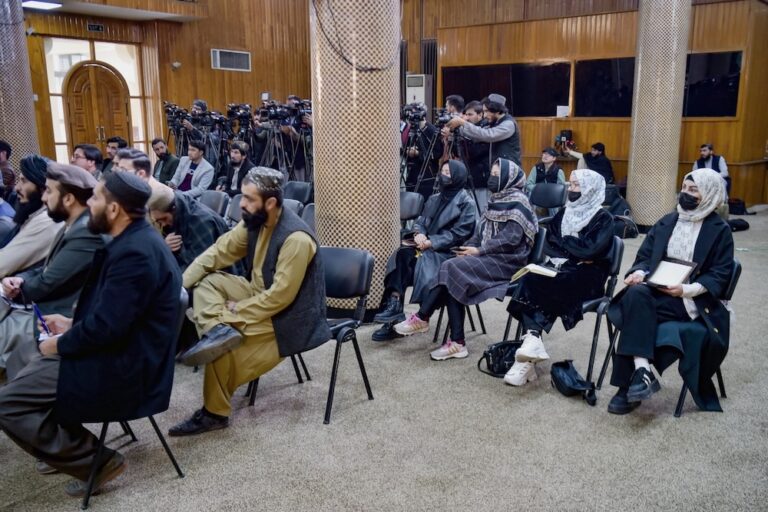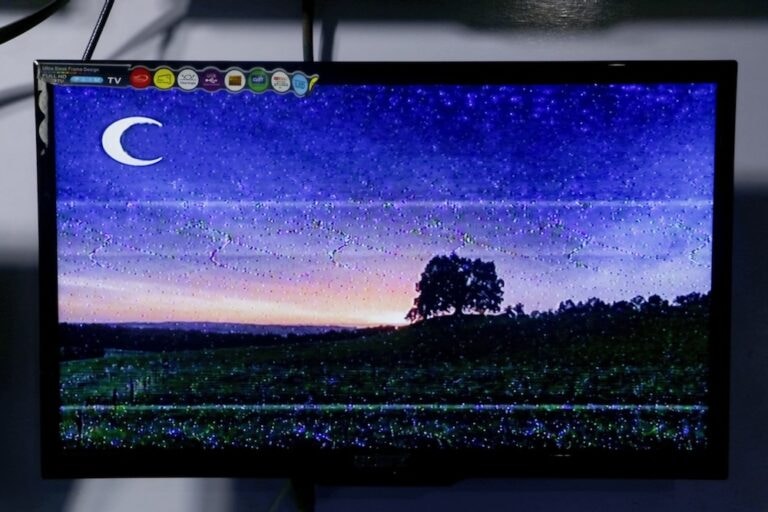(RSF/IFEX) – In a letter to the United States’ (US) Secretary of Defence Donald H. Rumsfeld, RSF protested the bombing of Afghan broadcasting installations by US forces. “The US government is repeating the same errors as NATO during the Kosovo war,” said RSF Secretary-General Robert Ménard. “Shutting down the Taliban regime’s propaganda media is an […]
(RSF/IFEX) – In a letter to the United States’ (US) Secretary of Defence Donald H. Rumsfeld, RSF protested the bombing of Afghan broadcasting installations by US forces. “The US government is repeating the same errors as NATO during the Kosovo war,” said RSF Secretary-General Robert Ménard. “Shutting down the Taliban regime’s propaganda media is an unsatisfactory solution to the urgent problem of information pluralism in Afghanistan,” added Ménard. The organisation asked the defence secretary to ensure that Afghan media installations are no longer targeted.
According to information obtained by RSF, US forces struck radio and television installations in Kabul, Kandahar (south of the country), Jalalabad (east) and Puli’Khomri (north of Kabul) in the first days of the “Enduring Freedom” military operation against the Taliban regime. On the first night of air strikes, the building and antennae of the official Radio Shariat station in Kabul were targeted and programmes were cut off. However, official radio installations were not targeted in Mazar-e Sharif (north of the country), where the strikes were nevertheless very violent. RSF cannot confirm if journalists or technicians were killed or injured during the strikes. Television installations, banned from broadcasting since 1996 by the Taliban, were also targeted. Following the strikes, programmes were suspended for more than three weeks.
On 24 October, the radio station that mostly broadcasts the Taliban authorities’ press releases and religious prayers, started to broadcast again, for no more than two hours per day. The Taliban used a mobile transmitter, but on the night of 25 October the air strikes destroyed this installation. According to the Taliban, two civilians were killed near the transmitter when they came to see the damage. Despite the new air strikes, the radio station started to broadcast its daily programmes again, for no more than one hour per day. Since then, the US has used the same frequencies as Radio Shariat to broadcast music (banned by the Taliban), messages in support of the military intervention and information for Afghan civilians.
According to some sources in Peshawar, buildings sheltering pro-Taliban publications have been targeted. However, some of them are believed to be publishing again and are being distributed in the country.
A Taliban representative in Pakistan asked RSF: ” How can the civilised world justify attacks on buildings sheltering media in Afghanistan?”
In a report titled “The Taliban and the press”, published in September 2000, RSF denounces the absence of information pluralism in Afghan media controlled by the Taliban regime (see IFEX alert of 27 September 2000).


